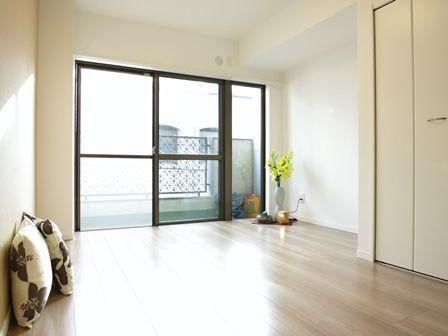Secondhand apartment prices in December (and 2013 average) - Tokyo Kantei
According to Tokyo Kantei, the average asking price of a 70 sqm (753 sqft) second-hand apartment in greater Tokyo in 2013 was 27,910,000 Yen, down 2.5% from the previous year. The average apartment age was 20.2 years. For the month of December, the average price was 28,310,000 Yen, up 0.3% from the previous month and up 0.4% from December 2012.
The average price in Tokyo's 23 wards in 2013 was 39,950,000 Yen, up 0.5% from 2012. The average building age was 20.5 years. For the month of December, the average asking price was 40,660,000 Yen, up 0.1% from the previous month and 2.3% higher than December 2012.Read more
Mongolian company's bid on Chongryon HQ rejected
 On January 23, the Tokyo District Court announced that they have decided against the sale of the foreclosed North Korean defector embassy building and land in Chiyoda-ku to a mysterious Mongolian company after documents submitted by the buyer were found to be colour copies and could not be authenticated as official documents issued by the Mongolian government.
On January 23, the Tokyo District Court announced that they have decided against the sale of the foreclosed North Korean defector embassy building and land in Chiyoda-ku to a mysterious Mongolian company after documents submitted by the buyer were found to be colour copies and could not be authenticated as official documents issued by the Mongolian government.
In October 2013, 'Avar LLC' was the winning bidder on the property after putting in the highest bid of 5.1 billion Yen. Suspicions were immediately raised after it was discovered that Avar was created in January with a capital investment of just 60,000 Yen and was registered to an apartment in Ulaanbaatar (the occupant of the apartment had no knowledge of the company).Read more
Toshima-ku to extend tax on studio apartments
 Toshima-ku in Tokyo announced that they will extend the special tax on builders of studio or 'one-room' apartments for another five years.
Toshima-ku in Tokyo announced that they will extend the special tax on builders of studio or 'one-room' apartments for another five years.
The tax applies to buildings with 9 or more apartments that are less than 30 sqm (323 sqft) in size. A construction company must pay a tax of 500,000 Yen on each studio apartment within two months of the commencement of construction.Read more
Procter & Gamble Japan to sell Rokko Island HQ
 Procter & Gamble Japan announced on January 8 that they will be selling their head office building in Rokko Island, Kobe, for an undisclosed sum. The buyer is Kobe-based trading and consulting firm Kengoo Group.
Procter & Gamble Japan announced on January 8 that they will be selling their head office building in Rokko Island, Kobe, for an undisclosed sum. The buyer is Kobe-based trading and consulting firm Kengoo Group.
The 30-storey building was completed in 1993. It has a total floor area of 43,500 sqm and is on a 7100 sqm block of land.
P&G will continue renting the building from the new owner before relocating to a new office in Sannomiya in early 2016.
Source: The Kobe Shimbun, January 8, 2014.
Second-hand apartment sales in December - REINS
According to REINS, 2,900 second-hand apartments were sold across greater Tokyo in December 2013, up 22.7% from the previous year, but down 7.1% from the previous month. The average sale price was 25,600,000 Yen, up 2.5% from the previous year but down 3.7% from November. The average price per square meter was 404,800 Yen, up 5.6% from last year but down 1.8% from November.
There were also more sales at the top end of the market. In the 4th quarter of 2013, 60 apartments over 100 million Yen were sold in the Tokyo metropolitan area, comprising 1.4% of the total. This is an increase of 131% from the same quarter in 2012. 141 apartments sold for between 70 ~ 100 million Yen, up 56.7% from 2012.
The average price of a second-hand apartment sold in central Tokyo's 3 wards (Chiyoda, Chuo and Minato) in December was 44,600,000 Yen, up 3.1% from last year but down 12.3% from the previous month. It is worth noting that the average size of an apartment sold in December was 9% smaller than the previous month.Read more
December rental data - Tokyo Kantei
According to Tokyo Kantei, the average rent of a condominium apartment in greater Tokyo was 2,536 Yen/sqm in 2013. This is the first time in 4 years that the average annual rent has seen an increase.
In 2012, the average rent in Tokyo's 23-ku was getting close to falling below 3,000 Yen/sqm, but by 2013 it began to climb upwards again. Rents in surrounding cities have remained relatively stable over the past few years. Osaka and Kobe City have seen an increase in new apartments hitting the market in 2012~2013, which has pulled up the average rent.Read more
Foreign developers caught by zoning regulations in Niseko
 Development in parts of Niseko's ski fields is being stalled due to inconsistencies between national and prefectural government building approvals.
Development in parts of Niseko's ski fields is being stalled due to inconsistencies between national and prefectural government building approvals.
In recent years, a number of hotels in Niseko have been purchased by foreign funds, closed down and in many cases demolished. The foreign developers acquired the hotels with the aim of building condominium-type hotels and resort apartments which would then be sold to wealthy foreigners.
However, a number of these sites have been sitting vacant without any signs of construction.
Why the hold up?Read more

